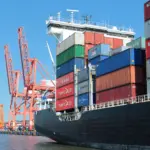In the bustling cafés of Prishtina, Kosovo’s capital, the optimism is palpable. Young entrepreneurs tap away on laptops while discussing their latest business ventures over macchiatos that rival those of Italy.
It is a scene that would have been unimaginable a quarter-century ago, when Kosovo emerged from conflict with Serbia. Today, the World Bank forecasts that Kosovo will remain the fastest-growing economy in the Western Balkans, with GDP growth of 3.8 per cent expected in 2025.
This growth, though slightly cooled from the 4.4 per cent seen in 2024, represents remarkable resilience for Europe’s youngest state.
Kosovo’s economic trajectory has defied many expectations since its declaration of independence in 2008, with per-capita income increasing by nearly 50 per cent and poverty falling by 35 per cent.
However, beneath these encouraging figures lies a complex economic reality shaped by unique challenges and geopolitical tensions that continue to define the country’s development path.
Beyond aid
Kosovo’s economic transition has been noteworthy. Once heavily dependent on foreign aid, the country has gradually developed a more self-sustaining economic model. Private consumption is now the primary growth engine, expected to contribute four percentage points to the 2025 expansion. Investment, meanwhile, will add another 1.3 percentage points, according to World Bank projections.
Kosovo has moved beyond being an aid-dependent economy to one driven by domestic demand. The challenge now is transitioning to an export-oriented growth model that can create quality jobs and further reduce poverty.
This transition has been fueled by several factors. The Kosovo diaspora, numbering approximately 800,000 people (nearly half the country’s resident population), provides a steady stream of remittances that bolster domestic consumption. In 2023, these remittances amounted to around one billion euros, equivalent to roughly 12 per cent of Kosovo’s GDP.
Financial sector development has also played a crucial role. Banking penetration has increased substantially, with credit to the private sector growing at a healthy clip. This financial deepening has supported small business development, particularly in the service sector, which now accounts for more than half of Kosovo’s economic output.
Prudent fiscal management has been another asset. Kosovo has maintained relatively low public debt levels compared to its neighbours, hovering around 25 per cent of GDP, giving the government fiscal space that many European countries would envy.
Low inflation has further contributed to macroeconomic stability, though this advantage has been tested by global inflationary pressures since 2022.
Unemployment and the need for well-paying jobs
Yet Kosovo’s economic model faces structural limitations. The country struggles with a persistently high unemployment rate of approximately 20 per cent, with youth unemployment closer to 30 per cent. These figures would be worse if not for substantial emigration, which has acted as a safety valve for labour market pressures.
The employment challenge reflects deeper productivity issues. Kosovo’s economy remains dominated by small, often informal businesses that struggle to achieve economies of scale. Manufacturing represents just 11 per cent of GDP, limiting export potential and making the country dependent on imports for many goods.
Kosovo needs to attract more productive investment that can create formal, well-paying jobs. Average salaries hover around 500 euros per month. This requires addressing infrastructure gaps, strengthening institutions, and improving the business environment.
Energy supply constraints illustrate these challenges. Kosovo relies on two aging coal-fired power plants that provide unreliable electricity. While the country sits on the fifth-largest lignite reserves in the world, environmental concerns and the EU’s green agenda complicate further exploitation of this resource. Frequent power outages force businesses to invest in backup generators, raising production costs and hampering competitiveness.
Education quality is another concern. Despite a young population—the average age is just 30—Kosovo’s education system struggles to equip students with the skills needed for a modern economy. The country performs poorly in international assessments, and employers frequently cite skills mismatches as a major constraint.
The political challenge
Underlying all these challenges is Kosovo’s unresolved political status. While recognised by more than 100 UN member states, including most Western democracies, Kosovo’s independence is not acknowledged by Serbia, Russia, China, and several EU members.
This limbo complicates Kosovo’s integration into international organisations and creates persistent uncertainty for potential investors.
The dispute with Serbia remains particularly problematic. Despite EU-facilitated dialogue since 2011, relations between Belgrade and Pristina are characterised by periodic tensions and limited progress on normalisation. Serbia continues to support parallel institutions in Serb-majority areas of Kosovo, especially in the north, creating governance challenges.
In 2023, tensions escalated when Kosovo attempted to implement new license plate regulations in northern municipalities, leading to roadblocks and protests. Though eventually defused, the episode highlighted the fragility of the situation and its potential to disrupt economic activity.
Political instability acts as a tax on Kosovo’s economy. It increases transaction costs, deters foreign investment, and diverts government attention from much-needed economic reforms.
These tensions also complicate Kosovo’s EU accession ambitions. While progress toward candidate status has been slow, the European perspective remains crucial for Kosovo’s economic development strategy. The EU is Kosovo’s largest trading partner, accounting for approximately 45 per cent of its external trade, and an important source of financial assistance.
Trade relations with Serbia present another challenge. Despite the Central European Free Trade Agreement (CEFTA), Serbia periodically imposes non-tariff barriers on Kosovo goods. In retaliation, Kosovo has sometimes implemented its own trade restrictions, including a controversial 100 per cent tariff on Serbian imports in 2018, which was later lifted following international pressure.
These trade frictions highlight a broader dilemma: Kosovo’s economic interests would be best served by pragmatic cooperation with Serbia, but the politics of national identity and historical grievances often prevail over economic rationality.
Reasons to be cheerful
Despite these challenges, there are reasons for cautious optimism. Kosovo has seen growth in several promising sectors, including information technology, food processing, and tourism. The IT sector, in particular, has leveraged Kosovo’s young, multilingual workforce to provide outsourcing services to Western European clients.
The government has also embarked on infrastructure improvements. A highway connecting Prishtina to Albania will reduce transport costs and open new markets, while planned road and rail upgrades could better integrate Kosovo into regional transportation networks.
Additionally, the diaspora is increasingly involved beyond remittances, with some successful emigrants returning to establish businesses or serving as conduits for knowledge and technology transfer.
For Kosovo to fully realise its economic potential, however, it must balance its sovereignty with finding workable compromises with Serbia. This will require political maturity from leaders on both sides and sustained international engagement.
Kosovo has already defied sceptics by building a functioning economy despite extraordinary challenges. The question now is whether it can move beyond mere resilience to true prosperity.
As patrons in Prishtina’s cafés dream of a European future, the path forward remains challenging but not impossible. Kosovo’s economic promise is real, but fulfilling it will require addressing deep structural issues and resolving the political limbo that continues to constrain its development.
The next chapter in Europe’s youngest state will depend on whether economic pragmatism can prevail over the politics of division that have defined the region for too long.
Photo: Dreamstime.







